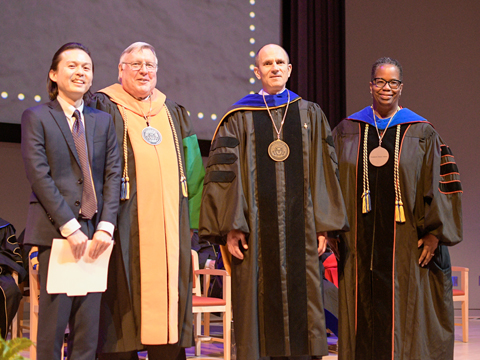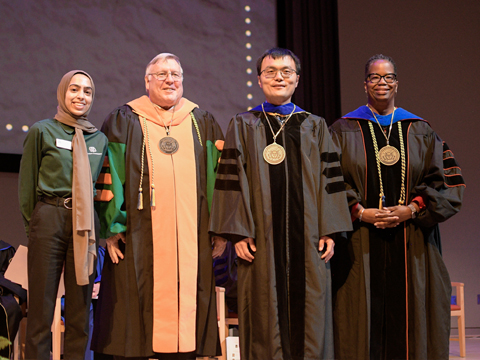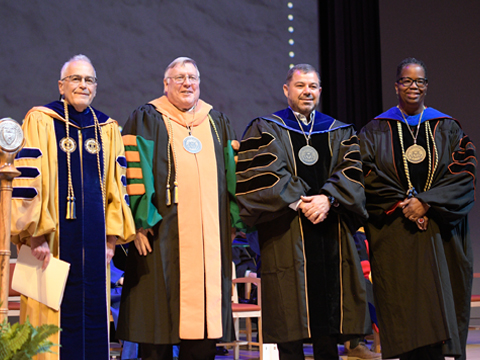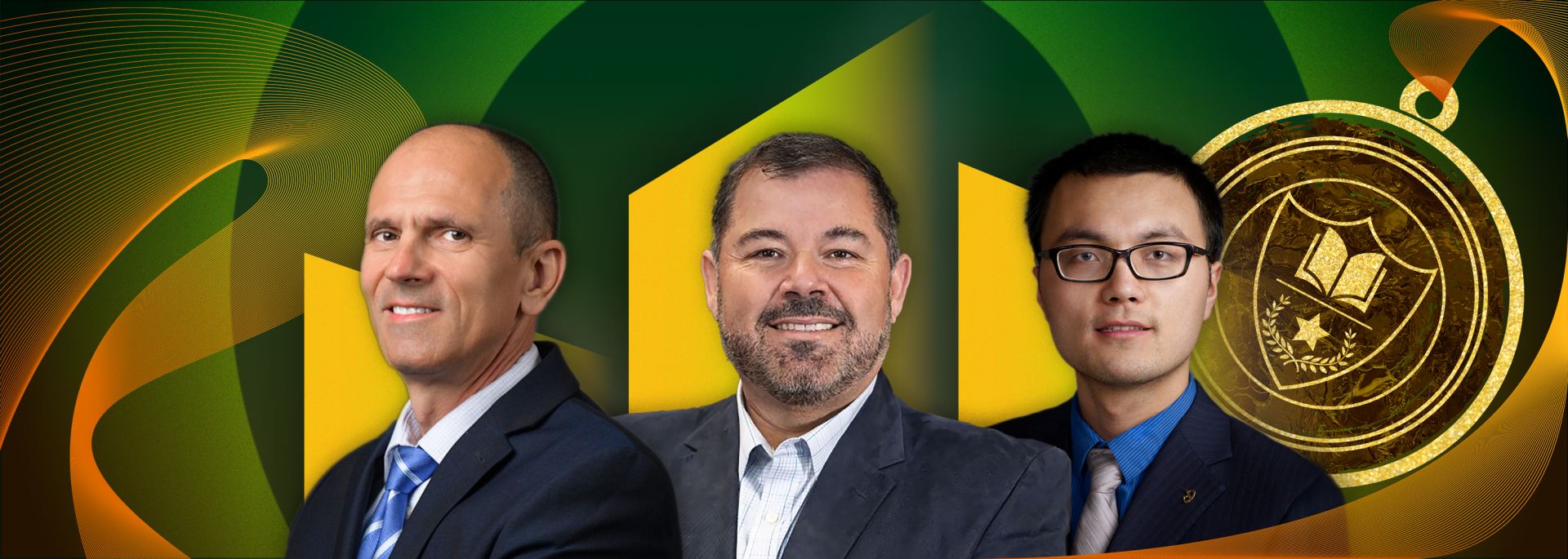
Jonsson School Faculty Leaders Invested at University Ceremony
The University of Texas at Dallas honored faculty who have recently been invested with endowed funding to advance key research and instructional programs, including two department leaders and a mechanical engineering associate professor from the Erik Jonsson School of Engineering and Computer Science. Each faculty member holds a new title in honor of the beneficiary, and the faculty were recognized at the Investiture Ceremony held at the Edith O’Donnell Arts and Technology Building in spring 2023.
President Richard C. Benson, holder of the Eugene McDermott Distinguished University Chair of Leadership, and Provost Inga H. Musselman, vice president for academic affairs and holder of the Cecil H. Green Distinguished Chair of Academic Leadership, noted that investment in exceptional faculty who will expand the University’s research will also challenge students to maintain high standards. Jonsson School Dean Stephanie G. Adams, holder of the Lars Magnus Ericsson Chair and professor of systems engineering, presented each investee with a medallion in recognition of their accomplishments. Several students and faculty attended to recognize their mentors and colleagues.
“Dr. Daescu is a mentor of the utmost character,” said Ka Yaw Teo, computer science PhD student, when introducing Dr. Ovidiu Daescu, who serves as head of the Department of Computer Science and now holds the Jonsson School Chair. “He believes in self-determination. I couldn’t ask for a better guide. I have no doubt that what I have learned from him will serve me well as an assistant professor.”
Daescu thanked members of his family and son Dr. Victor Daescu who completed his bachelor’s degree in biology and healthcare management at UT Dallas in 2019 and his MD at UT Southwestern Medical Center in 2023.

“I feel myself so attatched to UT Dallas and so grateful to be here. Erik Jonsson is a name so closely tied to UT Dallas.”
Dr. Ovidiu Daescu, Head of the Department of Computer Science and Jonsson School Chair
“It has been a long way for me to get here,” Daescu said. “I feel myself so attached to UT Dallas and so grateful to be here. Erik Jonsson is a name so closely tied to UT Dallas. I’d also like to thank my other PhD students and my fellow faculty who have helped me along the way. With this endowment, I’m looking forward to contributing a lot more than I’ve done so far.”
Dr. Zhenpeng Qin, associate professor of mechanical engineering, was recognized for his growing research output, and he acknowledged that he has reached this stage in his career through his family’s support, including his wife Dr. Hui Ouyang, assistant professor of mechanical engineering.

“I am extremely honored for the Eugene McDermott professorship. It’s been a productive journey so far, and I’m looking forward to building a brighter future here.”
Dr. Zhenpeng Qin, Associate Professor of Mechanical Engineering and Fellow, Eugene McDermott Professor
“I am extremely honored for the Eugene McDermott professorship,” Qin said. “I’d like to thank my wife. With three kids and two working parents, you can imagine we’re quite a busy family. I’d also like to say thank you for all the mentorship I’ve received over the years, both here and elsewhere. It’s been a productive journey so far, and I’m looking forward to building a brighter future here.”
Dr. Bruce Gnade, professor emeritus of materials science and engineering, introduced Dr. Manuel Quevedo-Lopez, professor and head of the Department of Materials Science and Engineering who is honored with the TI Distinguished University Chair in Nanoelectronics, a chair created in 2007 as a joint venture between the Texas Emerging Technology Fund, The University of Texas System, UT Dallas, The University of Texas at Austin, The University of Texas at Arlington and private industry.
“I’ve known him for 25 years,” Gnade said. “It’s truly been a pleasure.”
Quevedo-Lopez also recognized his wife and young daughters in attendance.

“I was supported by TI as a graduate student, then I went to work at TI for several years and now here I am with this endowment. My only hope is that I can impact more lives in a positive way.”
Dr. Manuel Quevedo-Lopez, Head of the Department of Materials Science and Engineering and TI Distinguished University Chair in Nanoelectronics
“My wife Erika and daughters are here,” Quevedo-Lopez said. “I come from a very small town in Mexico. I appreciate the effort now, and I hope to extend that to our little ones. There’s a full circle. I was supported by TI as a graduate student, then I went to work at TI for several years, and now here I am with this endowment. My only hope is that I can impact more lives in a positive way.”
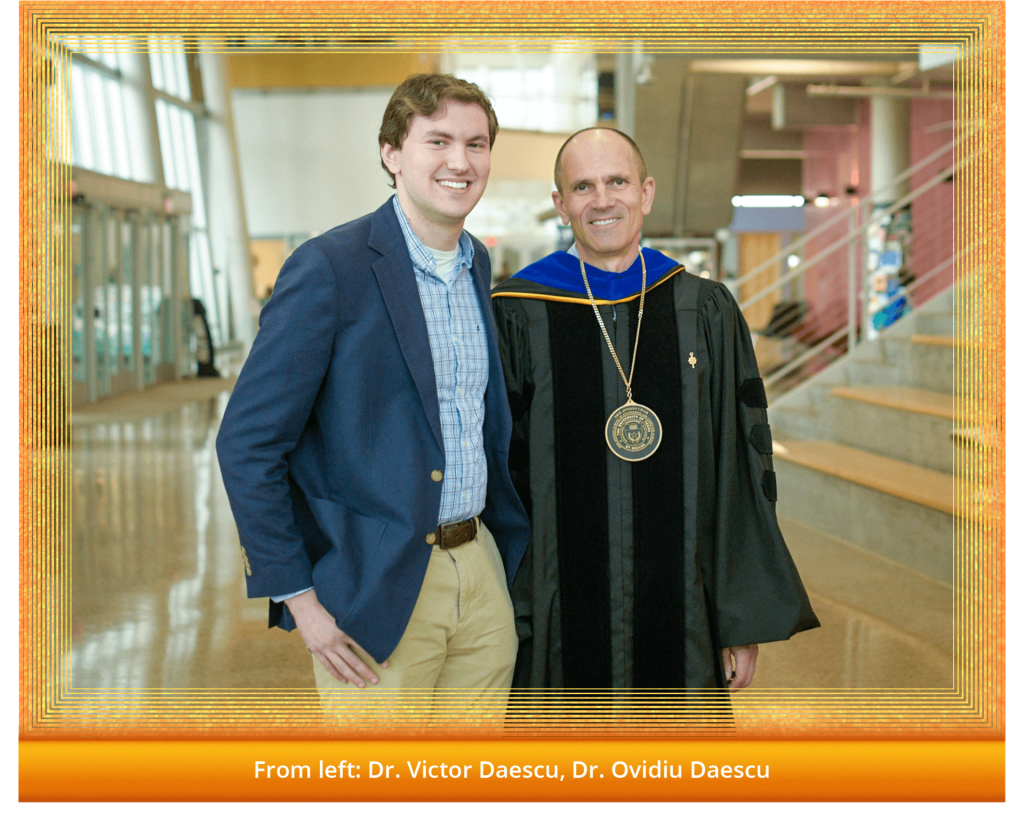
Dr. Ovidiu Daescu
Jonsson School Chair
Daescu serves as head of the Department of Computer Science, one of the largest computer science programs in the country. He is an internationally recognized expert in algorithm design and optimization, computational geometry and biomedical computing. His algorithms could be used to assess tumors and predict treatment outcomes for children with cancer. Since joining the University in 2000, Daescu has served as associate department head, director of undergraduate education and computer science faculty lead on the bachelor’s degree in
data science.
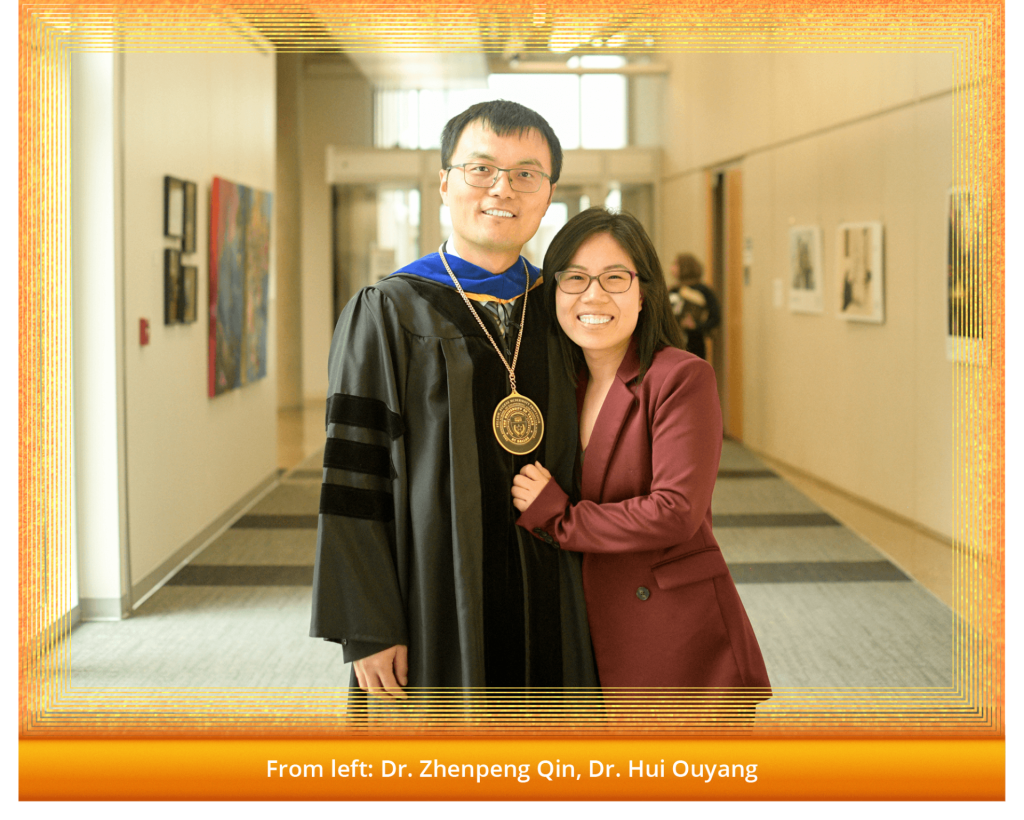
Dr. Zhenpeng Qin
Fellow, Eugene McDermott Professor
Qin, an associate professor of mechanical engineering, leads the NanoBioengineering Laboratory where he develops nanotechnology-based approaches to study the brain, deliver medicine and diagnose diseases. He has helped develop more accurate rapid tests for diagnosing infectious disease and has also studied how opening the blood-brain barrier can deliver medication to the brain and how neuropeptides affect brain circuits and behavior in real time. He is affiliated with UT Dallas’ Center for Advanced Pain Studies, the Department of Bioengineering and UT Southwestern Medical Center’s Department of Surgery.
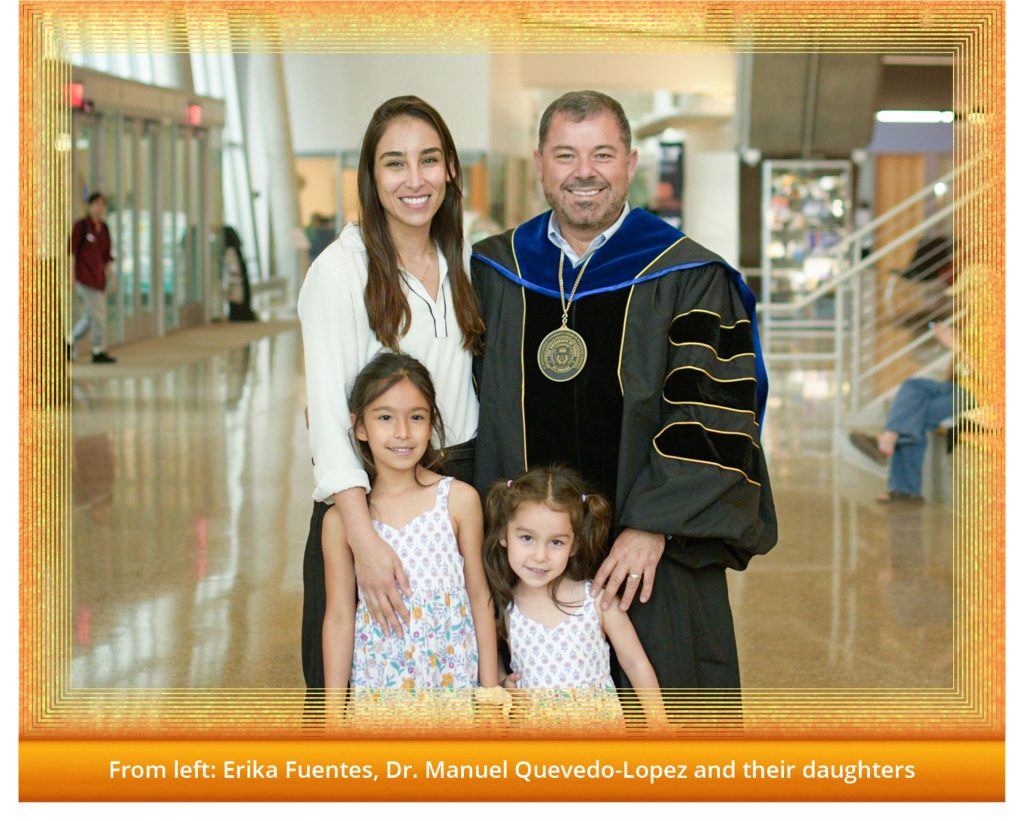
Dr. Manuel Quevedo-Lopez
TI Distinguished University Chair in Nanoelectronics
Quevedo-Lopez serves as head of the Department of Materials Science and Engineering, as well as director of the UT Dallas Center for Harsh Environment Semiconductors and Systems (CHESS), part of UT Dallas’ North Texas Semiconductor Institute. He works on the development of large area sensors and flexible electronics, combining physics, chemistry and engineering. His lab also focuses on nuclear threat detection technology, nanomaterials for flexible electronics, process integration, memory integration, device modeling and simulation.
